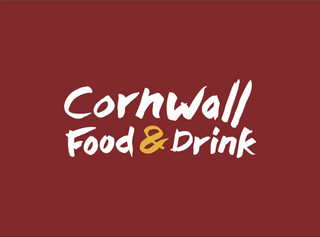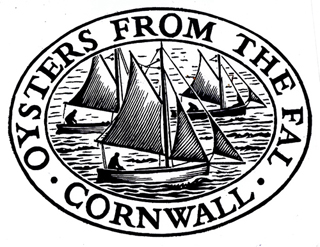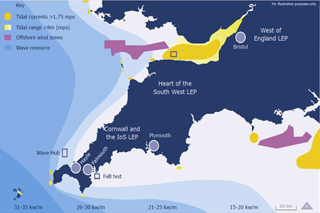A thriving future for our gardens, fields and ocean
 Amidst all the unrelenting grimness of February weather, Cornwall offers up a glimmer of hope. Snowdrops, daffodils and other early bloomers are beginning to spring up, providing a welcome splash of colour and life in a barren, and this year comprehensively sodden, landscape.
Amidst all the unrelenting grimness of February weather, Cornwall offers up a glimmer of hope. Snowdrops, daffodils and other early bloomers are beginning to spring up, providing a welcome splash of colour and life in a barren, and this year comprehensively sodden, landscape.
The joy that our plant life brings cannot be underestimated, and many of us cherish the opportunity to grow flowers and other produce in our gardens and allotments. I was therefore concerned to learn late last year that new European Union regulations had been proposed that threatened to drive up the cost and reduce the varieties of horticultural seeds. Under the proposals the production and sale of seeds gardeners would have been put on the same legal footing as the commercial seed industry, supplying bulk stocks to farmers and horticulturists.
This would have obliged producers to go through a complicated and costly registration process for each new seed variety developed, with costs being passed onto gardeners.
 The Royal Horticultural Society raised serious concerns about the impact of the price rise, on both gardeners and garden centres, and I was able to take these concerns up in a question to the Prime Minister in the House of Commons. The Prime Minister, who is himself a keen gardener, promised to look closely at the issue.
The Royal Horticultural Society raised serious concerns about the impact of the price rise, on both gardeners and garden centres, and I was able to take these concerns up in a question to the Prime Minister in the House of Commons. The Prime Minister, who is himself a keen gardener, promised to look closely at the issue.
Three months on I am pleased to report that, with the support of the Prime Minister, British Members of the European Parliament, including my Conservative colleague in the South West Julie Girling, have successfully argued against the proposals. The European Parliament’s Agriculture Committee have subsequently voted to throw out the proposals, preventing a steep rise in seed prices.
Of course growing in Cornwall isn’t limited to gardening. Our farmers and food and drink producers create products that don’t just taste great, they also play a vital role in Cornwall’s economy. Over the past decade the value of the sector has doubled, and is now approaching £2 billion. Cornish Food and Drink businesses deliver 6{c8c3b3d140ed11cb7662417ff7b2dc686ffa9c2daf0848ac14f76e68f36d0c20} of Cornwall’s Gross Domestic Product, and are helping the Duchy’s economy to grow at a faster rate than any other part of rural Britain. Cornwall’s finances, as well as our kitchen tables, need Cornish food and drink to continue to thrive.
 It is good to see an excellent organisation, Cornwall Food and Drink, going from strength to strength and leading these celebrations; organising the Cornwall Food and Drink Festival at Lemon Quay and this November hosting an exhibition of Cornish producers at Westminster. Producers participating in the Westminster event included well known market leading Cornish brands like Sharps and Roddas along with newer companies, including Roseland based St Ewe’s eggs. St Ewe’s eggs include higher than usual levels of the nutrient selenium and come from a number of Roseland farms; a real community effort producing super-healthy food.
It is good to see an excellent organisation, Cornwall Food and Drink, going from strength to strength and leading these celebrations; organising the Cornwall Food and Drink Festival at Lemon Quay and this November hosting an exhibition of Cornish producers at Westminster. Producers participating in the Westminster event included well known market leading Cornish brands like Sharps and Roddas along with newer companies, including Roseland based St Ewe’s eggs. St Ewe’s eggs include higher than usual levels of the nutrient selenium and come from a number of Roseland farms; a real community effort producing super-healthy food.
Cornwall Food and Drink work to promote such outstanding Cornish produce to new markets, helping more local businesses to break into national supermarkets.
 Of course one particular Cornish foodstuff has always been popular, our wonderful seafood brought up from the ocean by our fishermen. An important part of my work is supporting this ancient and vital Cornish industry. Three years ago an important part of this industry, the Fal Oyster Fishery, was threatened by European Union plans to impose regulations on Oyster boats that could have put the Fishery out of business. I led a debate alerting the House of Commons to this danger in 2011 and last year was delighted to see Ministers refuse to implement the new regulations. It is good to see the Government standing up to Europe to prevent a historic fishery from being hit with unnecessary red tape.
Of course one particular Cornish foodstuff has always been popular, our wonderful seafood brought up from the ocean by our fishermen. An important part of my work is supporting this ancient and vital Cornish industry. Three years ago an important part of this industry, the Fal Oyster Fishery, was threatened by European Union plans to impose regulations on Oyster boats that could have put the Fishery out of business. I led a debate alerting the House of Commons to this danger in 2011 and last year was delighted to see Ministers refuse to implement the new regulations. It is good to see the Government standing up to Europe to prevent a historic fishery from being hit with unnecessary red tape.
 Sadly however another threat to the livelihoods of all our fishermen has now arisen, in the form of a proposed new marine environment park required by the EU Habitats Directive. I believe that a good balance can be struck between the protection of our precious marine wildlife, and encouraging the growth of the marine businesses that provide employment for local people. In this instance it is clear to me that the details of the proposed new park needs to be revised, in order to address the legitimate concerns raised with me by fishermen in St Mawes and elsewhere about the park’s impact on fishing activities. I am taking this up with Ministers.
Sadly however another threat to the livelihoods of all our fishermen has now arisen, in the form of a proposed new marine environment park required by the EU Habitats Directive. I believe that a good balance can be struck between the protection of our precious marine wildlife, and encouraging the growth of the marine businesses that provide employment for local people. In this instance it is clear to me that the details of the proposed new park needs to be revised, in order to address the legitimate concerns raised with me by fishermen in St Mawes and elsewhere about the park’s impact on fishing activities. I am taking this up with Ministers.
Fishermen have of course also been hit by the appalling winter weather, with many not being able to put out to sea for weeks on end. I am therefore pleased that the government has now confirmed that fishermen will be able to bid for support from a £10 million business support fund, in recognition of the financial losses they have sustained.
 Full details as to the flood relief available to flooded households and business can be found here: http://www.sarahnewton.org.uk/news/storm-update-1
Full details as to the flood relief available to flooded households and business can be found here: http://www.sarahnewton.org.uk/news/storm-update-1
On a brighter note I am pleased to report that the Government’s decision to give Cornish businesses powers to grow the local economy is now paying off for producers. The Cornwall and Isles of Scilly Local Enterprise Partnership have now launched the ‘Skills Support for the Workforce’ project that gives workers in a range of key sectors, including food and drink production, access to high quality skills training to boost their own careers and the Cornish sector they work in. More information can be found by visiting www.cornwall.ac.uk
Cornish produce, whether hailing from garden, field or ocean, is vitally important to all of us and I will continue to do all I can to promote it, and encourage its further growth.
Sarah Newton MP

